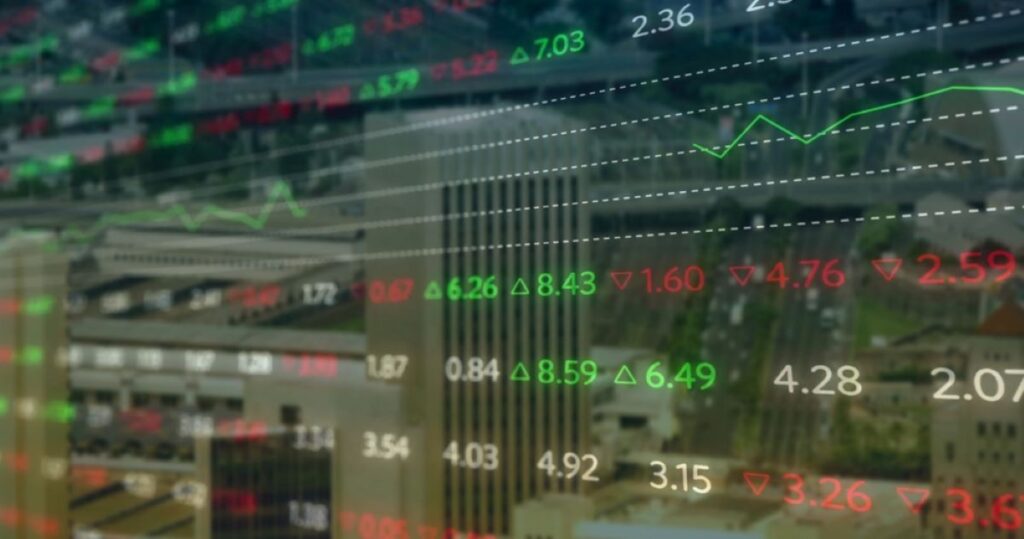Thinking about how to invest in the Nigerian stock market?
The Nigerian stock market has a lot to offer if you’re looking to grow your wealth, diversify your investments, or just explore new opportunities.
But if you’re new to this, it can feel a bit overwhelming.
Don’t worry! I’m going to break it all down, step by step.
By the end of this guide, you’ll know exactly how to get started, what you need, and even which stocks to keep an eye on for potential growth.
Let’s get started!
A Quick Look at the Nigerian Stock Market
The Nigerian stock market is one of Africa’s largest, with plenty of investment opportunities across sectors like banking, telecoms, and agriculture.
The main hub for buying and selling stocks is the Nigerian Exchange Group (NGX), formerly known as the Nigerian Stock Exchange (NSE).
Through the NGX, you can invest in top Nigerian companies and potentially grow your money over time.
But first things first: to buy and sell stocks, you’ll need a few things in place.

How to Invest in the Nigerian Stock Market
Here’s how to get started on investing in the Nigerian stock market:
1. Get Yourself a Stockbroker
To invest in the Nigerian stock market, you’ll need a stockbroker.
Think of a stockbroker as the middleman between you and the stock exchange—they handle the buying and selling of shares on your behalf.
- Find a broker: Do your research and choose a licensed stockbroker. You can find a list of approved brokers on the Securities and Exchange Commission (SEC) website. Look for one with good reviews and transparent fees.
- Open an account: After picking a stockbroker, you’ll need to open a brokerage account. You’ll likely need to provide a government ID, proof of address, and your bank account details.
- Fund your account: Once your brokerage account is set up, the next step is funding it. Your broker will guide you on how much you need to get started.
Most brokers these days offer easy-to-use apps or online platforms, so you can buy and sell stocks from anywhere.
Some of the popular stockbrokers in Nigeria include Meristem Securities and Chapel Hill Denham.
2. Set Up a CSCS Account
Once you’ve got your stockbroker account, the next step is setting up a Central Securities Clearing System (CSCS) account.
The CSCS is where all your stock purchases are recorded electronically, so you don’t have to worry about keeping paper stock certificates.
Don’t sweat the details—your broker will help you get this set up as part of the process.
3. Know the Costs Involved
There are a few fees you need to keep in mind when investing in stocks in Nigeria. For example:
- Brokerage fees: Your broker will charge a small commission for each trade you make.
- Transaction fees: The SEC charges 0.3% of the transaction amount when you buy or sell shares. There’s also a small stamp duty.
Before you start trading, be sure to ask your broker about all the fees involved so you know what to expect.
4. Do Your Research
This step is crucial. Before buying any stock, make sure you’ve done some homework.
You’ll want to look at:
- Company fundamentals: Check out the company’s earnings, revenue growth, and whether they pay dividends.
- Industry trends: Is the sector growing or shrinking? What’s the company’s market position like?
- Economic factors: Keep an eye on Nigeria’s inflation rate, government policies, and other economic indicators.
For up-to-date market analysis, Proshare or BusinessDay can be super helpful.
They provide lots of information on listed companies and overall market performance.
How to Buy and Sell Stocks
Now that you’ve done your research, it’s time to make your first trade.
Here’s how it works:
- Buying shares: Log into your broker’s platform or app, choose the stock you want, decide how many shares to buy, and place a buy order. Your broker will handle the rest.
- Selling shares: When you’re ready to cash out or sell your shares, simply log in, place a sell order, and your broker will take care of it. The proceeds will hit your brokerage account, minus fees.

Best Stocks to Invest in Nigeria
Now, let’s answer one of the most common questions: What’s the best stock to invest in Nigeria?
While there’s no one-size-fits-all answer, here are a few stocks that have consistently performed well:
- Dangote Cement Plc
This company is one of the biggest players in Africa’s construction industry and regularly posts strong earnings. It’s a solid choice for those looking for a long-term investment. - MTN Nigeria Communications Plc
As one of the largest telecom providers in Nigeria, MTN is benefiting from the country’s increasing demand for mobile and internet services. A solid bet if you’re into tech and telecoms. - Zenith Bank Plc
A heavyweight in Nigeria’s banking sector, Zenith Bank is known for its profitability and stable dividend payments. It’s a good pick if you’re looking for stability. - Guaranty Trust Holding Company (GTCO)
GTCO is another top-tier bank, and it’s often praised for its innovation and customer-focused services. It’s a strong option for anyone looking at financial stocks.
Remember, the best stock for you depends on your goals. Some investors prioritize long-term growth, while others focus on dividend-paying stocks.
It’s all about finding what suits your strategy.
Key Investment Strategies for Success
- Diversify: Don’t put all your money into one stock or sector. Spread your investments across different industries to reduce risk.
- Think Long-Term: While short-term trading is exciting, the real money is often made over the long haul. Hold onto your stocks through the ups and downs of the market.
- Reinvest Your Dividends: If you’re earning dividends, reinvesting them can help compound your returns over time.
- Stay Informed: The stock market is dynamic. Make sure you stay updated on the latest news affecting your investments. A tool like the NGX mobile app can help you track stock prices on the go.
What Are the Risks?
Like all investments, the Nigerian stock market comes with its own set of risks:
- Economic Fluctuations: Nigeria’s economy is closely tied to oil prices, which can make the market volatile.
- Currency Risk: The value of the Naira can impact your investment returns, especially if you’re trading internationally.
That said, understanding these risks and planning accordingly can help you avoid major pitfalls.
FAQs
- Can foreigners invest in Nigerian stocks?
Yes! Foreigners can invest in Nigerian stocks, provided they comply with local regulations set by the SEC and Central Bank of Nigeria. - What’s the minimum amount needed to start investing?
There isn’t a fixed minimum, but you’ll need enough to cover the cost of at least one share and the transaction fees. - How do I receive dividends?
Dividends are usually paid directly into your brokerage or bank account.
Wrapping It Up
Investing in the Nigerian stock market can be a smart way to grow your wealth and diversify your portfolio.
Whether you’re looking at powerhouse stocks like Dangote Cement or MTN Nigeria, the key is to do your research, think long-term, and keep an eye on market trends.
So, now that you know the steps, what’s stopping you from getting started?
Happy investing!